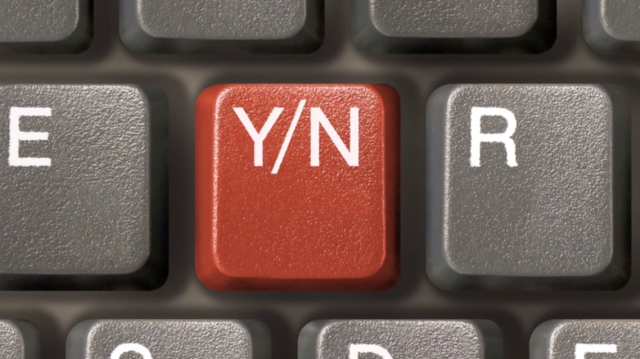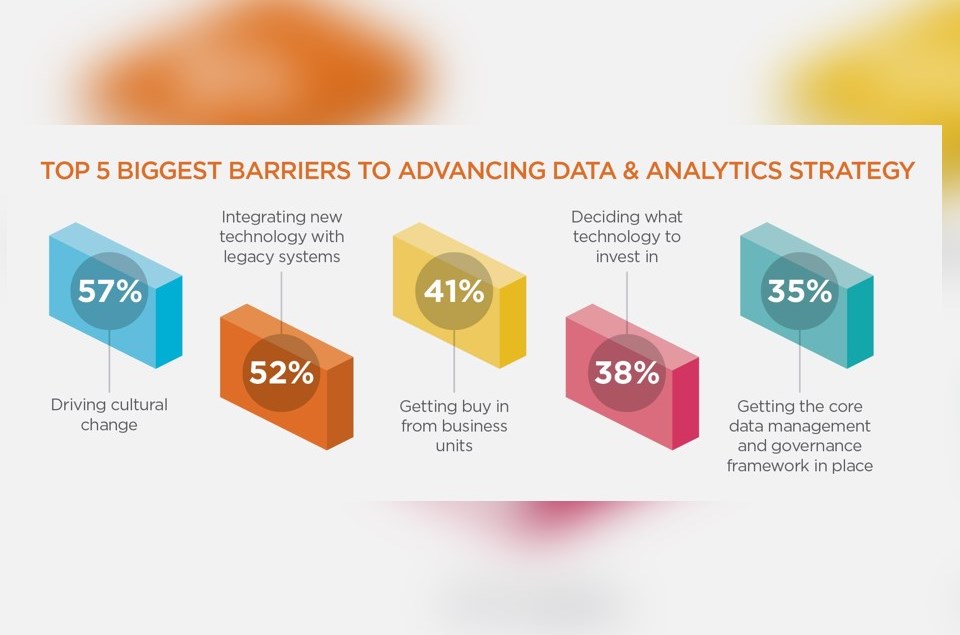We recently caught up with Caroline Carruthers, Group Director of Data Management, Lowell Group and Peter Jackson, Chief Data Officer, Southern Water regarding their newly-released book, “The Chief Data Officer’s Playbook“, and we asked them if they would be happy to share their favourite chapter ahead Chief Data & Analytics Officer, UK event in London on February 20-22 where they will be running a masterclass for CDAOs on Getting the Basics Right.
Have you ever watched those programmes on TV where a person is labelled a ‘hoarder’? There tends to be various interviews with friends and family who are worried about the person and then pictures showing the home that they live in which is usually so full of stuff that the home is unliveable in. You then see the person themselves who sometimes recognises the problem but not to the same extent their nearest and dearest do. Normally they have found a way to make their home work as far as they are concerned, there are paths around as long as you pull in your stomach and walk sideways, and the oven makes a much better cupboard than it did a cooking implement so cold food works just fine. If you watch them though you can tell that deep down they know that this isn’t how most people live but are in denial about the amount of their time they are sitting in discomfort and working around a situation which to outside eyes could be easily solved.
Most of us have tendencies in this direction, those shoes, tools, drawer full of bits that you keep just in case. Every single one of us must have experienced that feeling when you suddenly need something that you threw away the day before because you had been storing it for so long and had never needed it before so resolve to be more patient with our storage needs next time.
While not belittling an obviously serious condition I would like to draw parallels with the companies we all work for. In this analogy imagine your company is the house, your data is the stuff that is being hoarded, which makes all of us the hoarders.
We all know that we keep too much data because we might need it, it’s cheap to keep so why not. We know that the amount of data we produce is growing exponentially but what does that mean, what is our comparison and what value are we getting from all this data? The figure that tells us that 90% of data has been created in the last two years is widely known now but what is more interesting is that if you took every book in every home, library and school they only account for up to 6% of the data we currently hold so what makes up the rest of it?! Until digital storage came into play books were the common storage method and how we stored all our knowledge. I’m not sure in five years I will care what some stranger had for dinner but I bet its stored somewhere..
We’ve also become conditioned to be lazy in this area, for years we have believed that IT will sort this all out for us so we don’t need to put any intelligence into it. Personal computers were smart right, you could play chess against them and spreadsheets took all the hassle out of using a calculator. It I am not for one second saying that the advent of the PC was not a good thing, far from it, I love the ability to grow, connect and feed our curiosity. What I am saying is that those spreadsheets didn’t create themselves, we have to show the PC what we wanted it to do and be really clear about it or you got some pretty odd findings, but somewhere down the line we forgot about us providing some of the intelligence in this equation. Not only did we let IT take the strain, we started to abdicate our responsibilities completely when it came to making the decisions about data.
Then even when or if we recognised that it is something we should be doing we suffer from the ‘I’ll get around to that’ phrase. It hasn’t been urgent and there is always something more pressing to be done so it gets put to the back of the drawer and we get to it later (you know that magic draw full of the stuff that you promise your self you will get around to that magically grows into a full blown set of drawer or cupboard after time – you know we all have one!). The organisation equivalent to this is an example used above we copied all that junk and contaminated our nice new system because it wasn’t the most pressing urgent problem we were having at the time. Lets be honest with ourselves – it takes time and money to do that right and there is normally something else we want to spend that time and money on. Reactiveness is just a normal part of everyday life in a business and I’m definitely not casting aspersions on people who have had to make tough budgetary and strategic decisions – I’ve made them myself and with hindsight I have to question if I would go back in time and make the same ones.
It’s even harder to get rid of something is no one will take ownership for it! Information flows through our organisations, it really is the lifeblood or organisations. Different parts of your company use the same information in different ways, your information isn’t static and it changes and morphs as it journeys through your company. No one want to take ownership for it because they sit in silos and whilst it enters their silo it also leaves and why would the take responsibility for something they have no control over. What if they make a decision about it and it was the wrong one? It’s much safer to keep it ‘just in case’ than to take the risk of finding it was critical to someone else in the business. The problem is if you can’t find owners for your information then how can you ever ask them?
This is partially how we have ended up in this mess in the first place, no one wants to be responsible for deleting data that proves to be incredibly valuable never mind a whole system full of the stuff, (this is where the difference between data and information can be really useful but more of that later)… It isn’t that all of a sudden being a CDO means you make all these decisions about what is and isn’t valuable – how could you completely understand ever part of the business and take all that responsibility on – you would really be setting yourself up to fail. Rather what you bring with you, the information architecture, the data domain owners, rigorous polices so you know what to delete or achieve – these are what brings the understanding, so you don’t make the decisions but you do know who will.
Bringing us back to our businesses how do we cope with this abundance of information? The truth is we don’t. It doesn’t matter that if we can’t find what we want, we just create more. It’s like we are feeding an endlessly hungry machine that devours all our data, constantly shovelling in fact after fact but what do we get for our effort? Why do we feed the beast? Our storage systems are just like the wood shed I have in my garden, I know the exact piece of wood I want is in there, I’m completely sure of it, now do I a) search through the massive pile of bits of wood that I swear reproduce on their own because I never put all of that in there or do I b) go buy it again and then subsequently end up sticking something else in the pile?
Instinctively we know we can’t store everything but are reluctant to throw anything away. What if we find out that we needed it after we no longer had it, how foolish would that make us look? We would have to spend more money and time on it again when it must be easier just to keep it. Fear is a powerful motivation for organisational paralysis but revelling in it is pretty inexcusable..
We have literally become the hoarders who plot little path ways through an overcrowded house and while we recognise that it’s not the best way to treat all of this stuff, we don’t recognise the overall harm we are doing to ourselves and our company. As long as we can get from a to b or are dimly aware of where our kitchen or bedroom are supposed to be we are kidding ourselves that we are doing ok even though deep down we all know we aren’t.
It’s not all doom and gloom however, help is at hand, but I am literally suggesting that we all need a dose of therapy. If we were working with a data therapist they would help us to:
- Discover why we are compelled to hoard – do your investigation on what is really happening within your organisation, what is your root cause analysis? What is broken and is driving the organisation to come up with work arounds. Human beings are great at following the path of least resistance so if they are working around something there will be a reason. Having your information architecture for this will help you even if you are just a the highest conceptual level as it gives you terminology to use that your business should recognise (if it doesn’t then your model is wrong, you might want to try that again)
- Learn to organise possessions in order to decide what to discard – get your policies and guidance right, what is your data retention policy? What does it cover? Does it manage to cope with different types of data?
- Develop decision making skills – hone your prioritisation skills as a company, understand what you are trying to achieve as a business and how the data you store and the information you use will help you achieve that, if it doesn’t then you need to ask yourself why you are keeping it. Utilising the technology to help you can be a great enabler here, forcing you to thing about how long you need to keep something for is a great start, a whole scale catagorisation of a data domain again a good starting point but not a complete substitute for the experts who understand the data, why they need it and what they are going to use it for thinking about it consciously.
- Declutter the home with a professional organiser – there are some areas where you just need an expert to help you. Just ask a teenage boy, they will tidy their room with a great deal more motivation and efficiency when their mum is standing over them holding the power cable to their xbox while informing them what their next task is going to be than when they will left to their own devices. There are tools to help you get rid of your clutter and sometimes it’s just easier for someone else to rip the band aid off. Once you are sure you have set the right rules for them to follow!
- Have periodic visits and consultations to check a healthy lifestyle – do your assurance, all policies need to be checked and potentially updated, all areas can take their eye of the ball occasionally
Finally this will all work best for you if you make sure you tackle the following two things – firstly focus on the whys not just the whats, why is your organisations storing everything? Why do your people store things on their flash drives? And why haven’t you updated your policies in 10 years? Secondly work with your organisation to understand it and help change it, no one likes things that are done to them and you probably aren’t the expert in every single area of your business. Let them do what they are good at and you do what you are good at.
Remember this is only one of the areas that you need to fix as a CDO but it is a very important one, especially for the first generation CDO. By getting rid of what you don’t need, use or want you can make an instant quick win with your IT department because you have just saved them money while at the same time made what you already have much more accessible utilising exactly the same tools the organisation has already invested in. If you can produce that kind of success within a company you can buy yourself some wiggle room to focus on the enterprise wide transformation that will give you the big changes.
Authors:
Caroline Carruthers, Group Director of Data Management, Lowell Group
Peter Jackson, Chief Data Officer, Southern Water
The world’s largest community of C-Suite executives
Receive our newsletter, get access to ‘members-only’ content, VIP conference invites and other updates from Corinium and the CxO Hangouts community.









